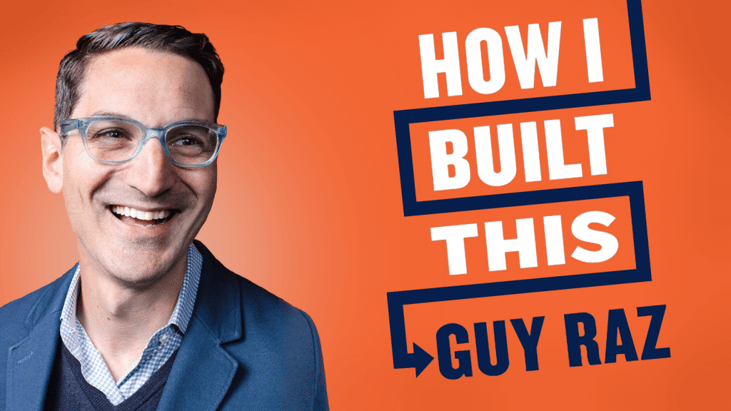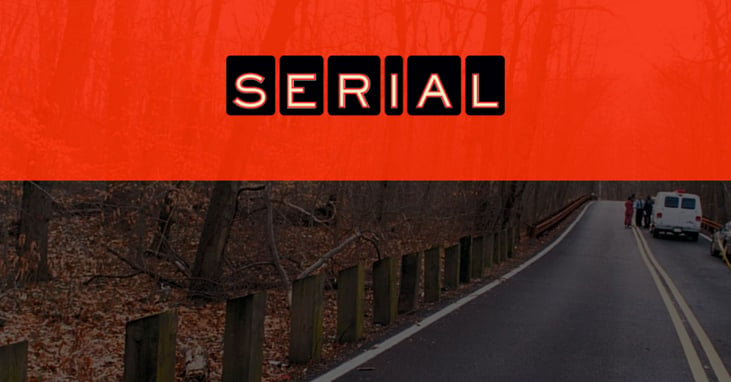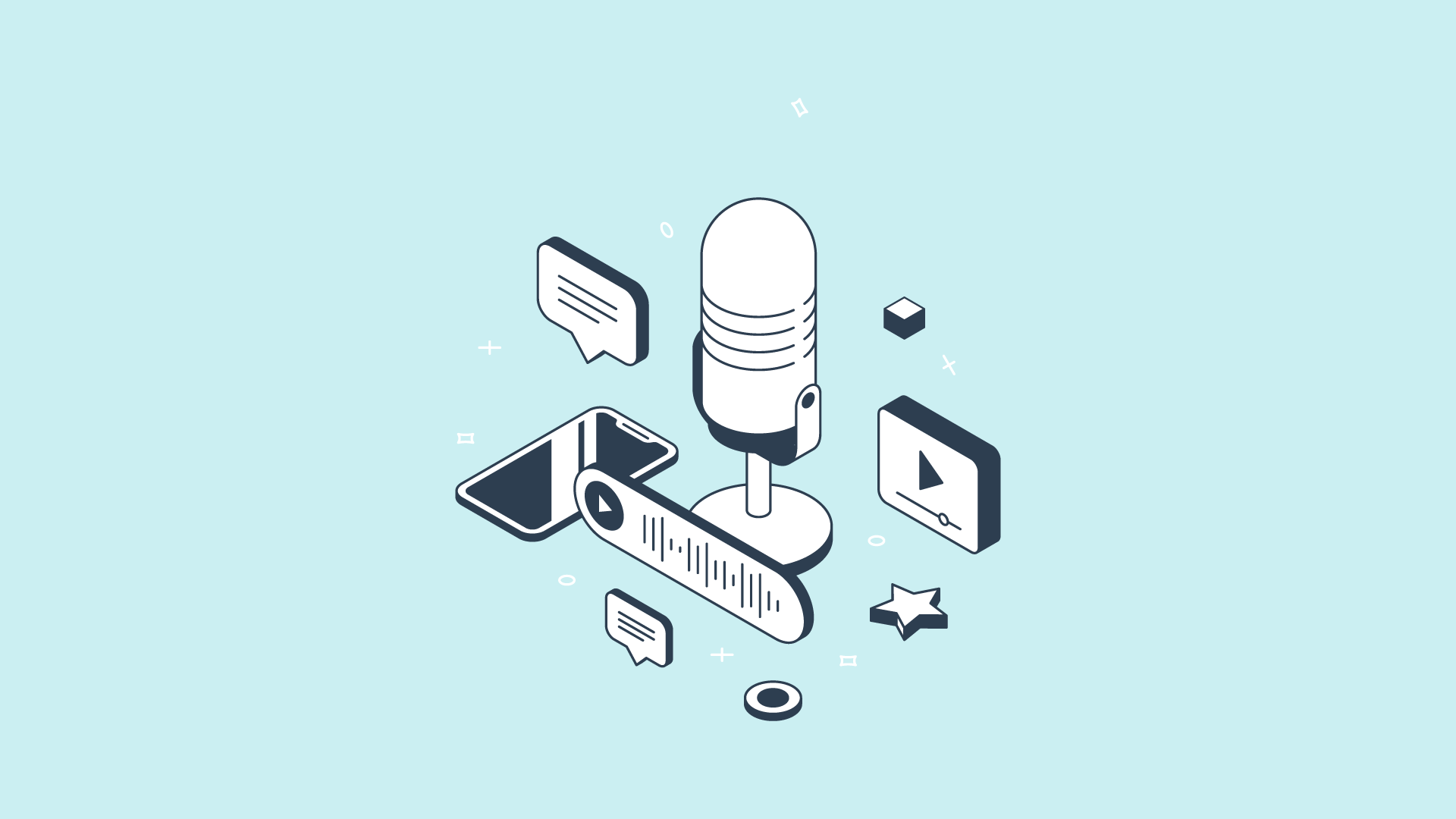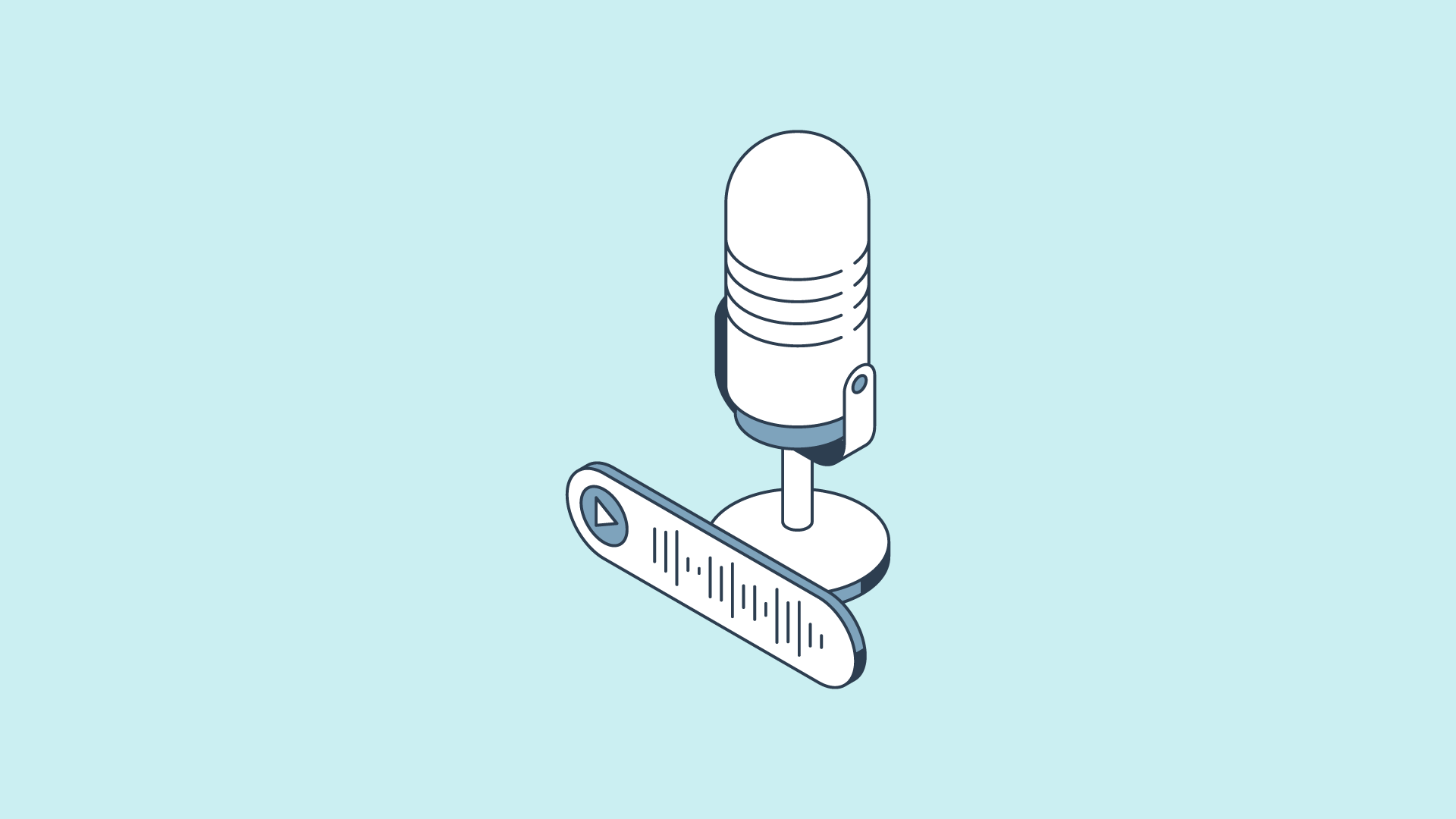As a marketer, you already know how important it is to have a strong content marketing strategy that resonates with your target audience. But have you considered the power of podcasting as a marketing tool?
Podcasting has become a powerful tool for marketers looking to reach their target audience and build brand awareness. But with more than 2 million podcasts available, how do you create a winning podcast that stands out from the crowd? The key is understanding the critical elements that make up a successful podcast.
If you're considering starting a podcast as part of your marketing strategy, it's essential to understand the key elements that make a podcast successful.
In this article, we’ll explore the anatomy of a winning podcast and cover critical elements that every marketer needs to know to create a podcast that resonates with their audience.
|
Podcast A podcast is an audio series that a user can download to a personal device and listen to at their leisure. |
As a marketer, you already know how important it is to have a strong content marketing strategy that resonates with your target audience. But have you considered the power of podcasting as a marketing tool?
Podcasting has become a powerful tool for marketers looking to reach their target audience and build brand awareness. But with more than 2 million podcasts available, how do you create a winning podcast that stands out from the crowd? The key is understanding the critical elements that make up a successful podcast.
If you're considering starting a podcast as part of your marketing strategy, it's essential to understand the key elements that make a podcast successful.
In this article, we’ll explore the anatomy of a winning podcast and cover critical elements that every marketer needs to know to create a podcast that resonates with their audience.
Podcast
A podcast is an audio series that a user can download to a personal device and listen to at their leisure.
What makes a Good Podcast?
With the right elements in place, you can create a winning podcast that resonates with your audience and builds a loyal following.
The quality of content is subjective, as what one person considers good may be considered unoriginal by another. However, certain works can gain popularity and importance through the consensus of a diverse group of individuals.
The popularity of the top-ranked shows suggests they are resonating with audiences, even for those who may not personally enjoy the current recommendations on their podcasting platform.
So, what's the secret sauce?
1. Focus on a Central Idea
To create a good podcast, you need to have a clear and well-defined central idea. This idea will serve as the foundation for your show, and everything else will revolve around it. You might have heard the phrase "niche down" before, and that's precisely what you need to do when developing your central idea. You need to find a specific topic that you're passionate about and that you know your target audience is interested in.
For example, let's say you're interested in fitness. Instead of creating a general fitness podcast, you could niche down to a specific area, such as running or weightlifting.
By focusing on a specific area of fitness, you can create content that is more targeted and valuable to your listeners. You'll also find it easier to stand out from the crowd and attract a loyal following.
2. Play to an Audience
When creating a podcast, it's crucial to understand who your audience is and what they want to hear. It might be tempting to try and appeal to a broad audience, but this often leads to a lack of focus and a diluted message. Instead, hone in on a specific group and tailor your content to their interests.
To determine who your target audience is, consider the topics you plan to cover in your podcast. Who would be most interested in those topics? What age group do they belong to? What are their interests and hobbies? By answering these questions, you can start to develop a clear picture of your ideal listener.
Once you have a good understanding of your audience, tailor your content to their interests. Use language and terminology that they will understand and appreciate. Speak directly to them in your episodes and address their concerns and questions. By doing so, you'll create a stronger connection with your listeners and increase their engagement with your podcast.
Remember, a successful podcast isn't just about creating great content. It's also about understanding your audience and delivering that content in a way that resonates with them. By focusing on your target audience and playing to their interests, you'll be well on your way to creating a winning podcast.
3. Regular Schedules
One of the biggest challenges when it comes to producing a podcast is consistency. It can be tough to commit to a regular release schedule, especially if you're doing everything on your own. But if you want to build an audience and keep them engaged, regular schedules are key.
Think about it: if you subscribe to a podcast and the host only releases an episode once every few months, are you going to stay subscribed? Probably not. The same goes for your listeners. If you're not releasing episodes consistently, they'll quickly lose interest.
That's why it's crucial to establish a regular schedule and stick to it. This doesn't mean you have to release an episode every day or even every week. It just means that you should choose a frequency that works for you and your audience and stick to it.
So, if you're serious about producing a successful podcast, commit to a regular release schedule and stick to it. Your listeners will appreciate the consistency, and you'll be more likely to build a loyal following.
4. Show Structures
When it comes to creating a successful podcast, having a well-structured show is essential. Show structure involves creating a format that engages your listeners and keeps them coming back for more. Here are some key elements to consider when developing your show structure.
First, it's important to have a clear idea of what you want your show to be about. Are you focusing on a particular industry, discussing current events, or interviewing guests? Once you have a central theme, you can begin to create a structure that complements your content.
Interview format
One structure that has become popular among podcasters is the interview format. This structure involves inviting guests to your show to discuss their areas of expertise or share their experiences. One example of a podcast that excels at this format is "How I Built This" with Guy Raz, where he interviews successful entrepreneurs about the process of building their companies.

Co-host format
Another popular structure is the co-host format, where two or more hosts discuss a particular topic. An example of a podcast that does this well is "Stuff You Should Know," where hosts Josh Clark and Chuck Bryant explore a wide range of topics in a conversational format.
Of course, you don't have to stick to just one structure. Many successful podcasts use a combination of formats to keep things fresh and engaging. For example, the podcast "My Favorite Murder" has a mix of storytelling, humour, and true crime analysis that keeps listeners on the edge of their seats.
One key to creating a successful show structure is to find a balance between consistency and flexibility. You want to establish a regular format that listeners can rely on, but also be open to making changes and trying new things. This could mean bringing on a new guest host, introducing a new segment, or experimenting with different episode lengths.
Remember, the structure of your podcast should ultimately serve the content and engage your audience. By keeping things interesting and fresh, you can build a loyal following and make your podcast stand out from the rest.
5. Authenticity
When it comes to podcasting, authenticity is key. Your listeners want to hear from real people with real experiences, not a polished, overly-scripted version of yourself.
Don't be afraid to show your personality and share your opinions. One of the biggest appeals of podcasts is the intimate nature of the medium - listeners feel like they are eavesdropping on a conversation between friends. So, be yourself and let your natural charisma shine through.
Of course, there is a balance to be struck between being authentic and being professional. You still want to be mindful of your tone and the image you're presenting to your audience. But ultimately, your listeners will appreciate your honesty and transparency.
So, don't be afraid to let your guard down and be yourself on your podcast. It will make for a more engaging and enjoyable listening experience for your audience.
6. Intriguing Summaries
You may have heard the phrase "Don't judge a book by its cover," but when it comes to podcasts, the cover art and episode summaries are often what initially draw listeners in. That's why creating intriguing summaries for your episodes is critical to the success of your podcast.
Think about it: with thousands of podcasts available, listeners have to choose which ones to devote their time to. And more often than not, they'll make that decision based on what they see and read. If your summary is bland or uninteresting, potential listeners may overlook your podcast altogether.
So, what makes a good summary? It should give listeners a clear idea of what they can expect from the episode without giving too much away. Your summary should be concise and attention-grabbing, making the listener curious enough to tune in.
For example, let's say you're doing an episode on the benefits of meditation. A summary like "In this episode, we'll be discussing the benefits of meditation" is straightforward but doesn't give the listener any incentive to listen.
On the other hand, a summary like "Discover how just 10 minutes of meditation a day can change your life" is much more intriguing and likely to pique the listener's interest.
In addition to writing compelling summaries, consider including teaser clips or quotes from the episode in your show notes or on social media. This can further entice potential listeners to tune in.
The goal of your summary is to convince someone to hit "play." Put yourself in the shoes of a potential listener and ask yourself: would this summary make me want to listen to the episode? If not, revise it until it does.
By creating intriguing summaries, you can increase the chances of attracting new listeners and keeping them coming back for more.
7. Interesting Content
To create a truly captivating podcast, the content must be interesting and engaging. After all, people tune in to be entertained, educated, or inspired. So, how can you ensure that your content is worth listening to?
One of the best ways to ensure that your content is engaging is to identify what your target audience wants to hear. Consider what topics and themes resonate with them, and create content that speaks to those interests.
For example, if you run a cooking podcast, your listeners may be interested in learning about new recipes, cooking techniques, and food culture. By creating content around these topics, you can keep your audience engaged and coming back for more.
Another way to keep your content interesting is to mix it up. If you always have the same guests or cover the same topics in the same way, your listeners may get bored. So, be sure to vary your content by bringing in new guests, trying new formats or segments, or exploring different aspects of your topic.
Of course, interesting content doesn't just come from the topics you cover - it also comes from the way you present that information. One way to make your content more engaging is to incorporate storytelling.
Ultimately, the key to creating interesting content is to put yourself in the shoes of your listeners. Think about what would grab their attention, what would keep them engaged, and what would make them want to tune in week after week.
By creating content that speaks to their interests and engagingly delivers value, you can build a loyal following and create a podcast that truly stands out.
8. High-Quality Equipment
High-quality equipment is crucial to producing a successful podcast. Not only does it ensure your listeners receive the best possible listening experience, but it also shows your commitment to the quality of your content.
Investing in good equipment might seem daunting, but it doesn't have to be. There are a few key things you need to keep in mind when selecting equipment, such as the type of microphone and headphones to use, the type of mixer or interface needed, and how to properly record and edit your audio.
One of the most important pieces of equipment for any podcaster is a quality microphone. A good microphone will help capture your voice accurately, minimize background noise, and ensure your audience can hear you loud and clear.
When it comes to recording and editing your audio, there are also many different software options available, ranging from free to more advanced paid options. Some popular software options for podcasting include Audacity, Hindenburg, and Adobe Audition.
To give you a starting point, here are a few examples of recommended podcasting equipment:
- Shure SM7B microphone: This is a popular choice among podcasters due to its ability to capture clear, high-quality audio.
- Audio-Technica ATH-M50x headphones: These headphones are known for their high-quality sound and comfortable fit.
- Focusrite Scarlett 2i2 interface: This interface allows you to record two microphones at once and has a high-quality preamp for optimal sound.
- Rodecaster Pro: This all-in-one mixer and recorder is great for beginners and allows for easy recording and editing of your podcast.
Remember, while high-quality equipment is important, it's also important to work within your budget and find equipment that fits your specific needs as a podcaster. With the right equipment, you'll be on your way to producing a successful podcast with great sound quality.
9. High-Grade Software
Having high-grade software is just as important as having high-quality equipment when it comes to producing a winning podcast. Software can help you edit your audio, remove background noise, add sound effects and music, and more. It's the backbone of the post-production process, and it can make or break the final product.
When it comes to choosing software, there are a few factors to consider. First, you want to make sure it's compatible with your operating system. Next, you want to look for features that are essential to your podcast, such as noise reduction, equalization, and compression. Finally, you want to make sure the software is user-friendly and doesn't have a steep learning curve.
One popular option is Adobe Audition, which is part of the Adobe Creative Cloud suite. Audition is a more advanced option and includes a wider range of features, such as multitrack editing and the ability to work with multiple file formats. However, it also comes with a higher price tag.
Ultimately, the right software for you will depend on your budget, the complexity of your podcast, and your personal preferences. It's important to do your research and test out different options to find the one that works best for you.
10. Music and Special Effects
Great podcasts have many elements that come together to create a truly immersive experience for their listeners. One of these elements is the use of music and special effects.
Music and special effects can help create an emotional connection with your listeners, evoke a certain mood or atmosphere, and make your podcast more memorable. But how can you use music and special effects effectively in your podcast?
Firstly, it's important to consider the tone and style of your podcast. If your podcast is a serious news or informational show, you may want to use music and effects sparingly or not at all. On the other hand, if your podcast is more lighthearted or comedic, music and effects can add to the overall entertainment value.
When choosing music and effects, make sure they are relevant to the content of your podcast. If you're discussing a serious topic, using upbeat or whimsical music could be jarring and take away from the gravity of the subject matter. Similarly, if you're trying to create a suspenseful atmosphere, using whimsical sound effects could break the tension.
There are many resources available for royalty-free music and sound effects that you can use in your podcast, such as Epidemic Sound or AudioJungle. When choosing software to edit your podcast, make sure it has capabilities for adding and editing music and effects, such as Adobe Audition or Logic Pro.
One great example of effective use of music and effects is in the true-crime podcast, "Serial". The podcast often uses suspenseful music and sound effects to create tension and keep listeners on the edge of their seats.

Grow with Podcasting
As a marketer, it's important to understand that podcasting can be a powerful tool for reaching your target audience. By incorporating these critical elements discussed in this article, you can create a winning podcast that engages and resonates with your listeners.
Remember, a good podcast focuses on a central idea, plays to an audience, has a regular schedule, a clear show structure, authenticity, intriguing summaries, interesting content, a regular release schedule, high-quality equipment, high-grade software, and uses music and special effects effectively.
While these elements can seem overwhelming, they are all essential to creating a successful podcast. As you begin your podcasting journey, take the time to research and understand each element, and don't be afraid to experiment and make mistakes.
To learn more about how to get going with podcasting, check out our guide to getting started with podcasting.
Fine Media, is an inbound marketing agency that specializes in creating high-quality content for businesses. Contact us today to learn more about how we can help take your podcast to the next level.



